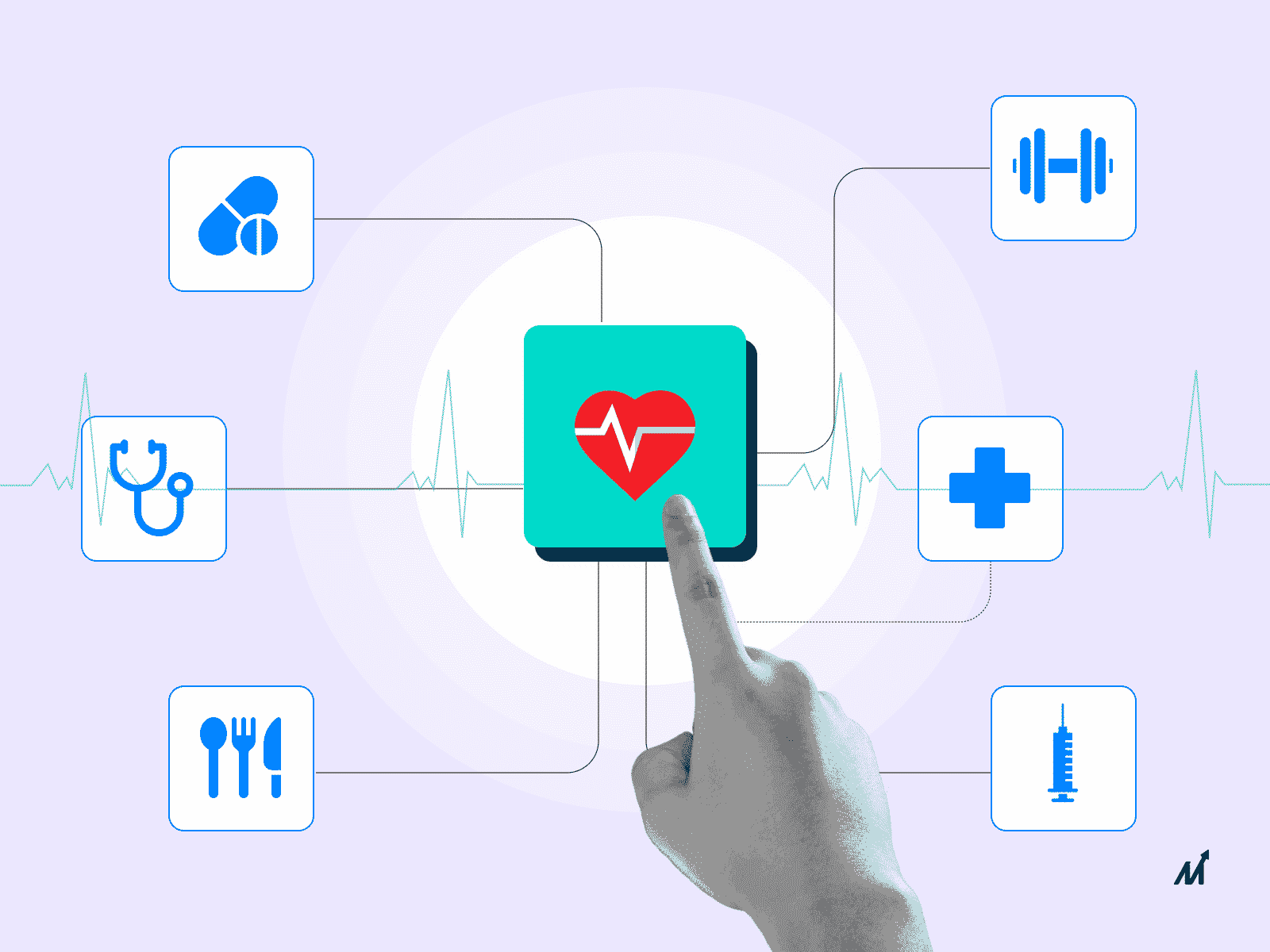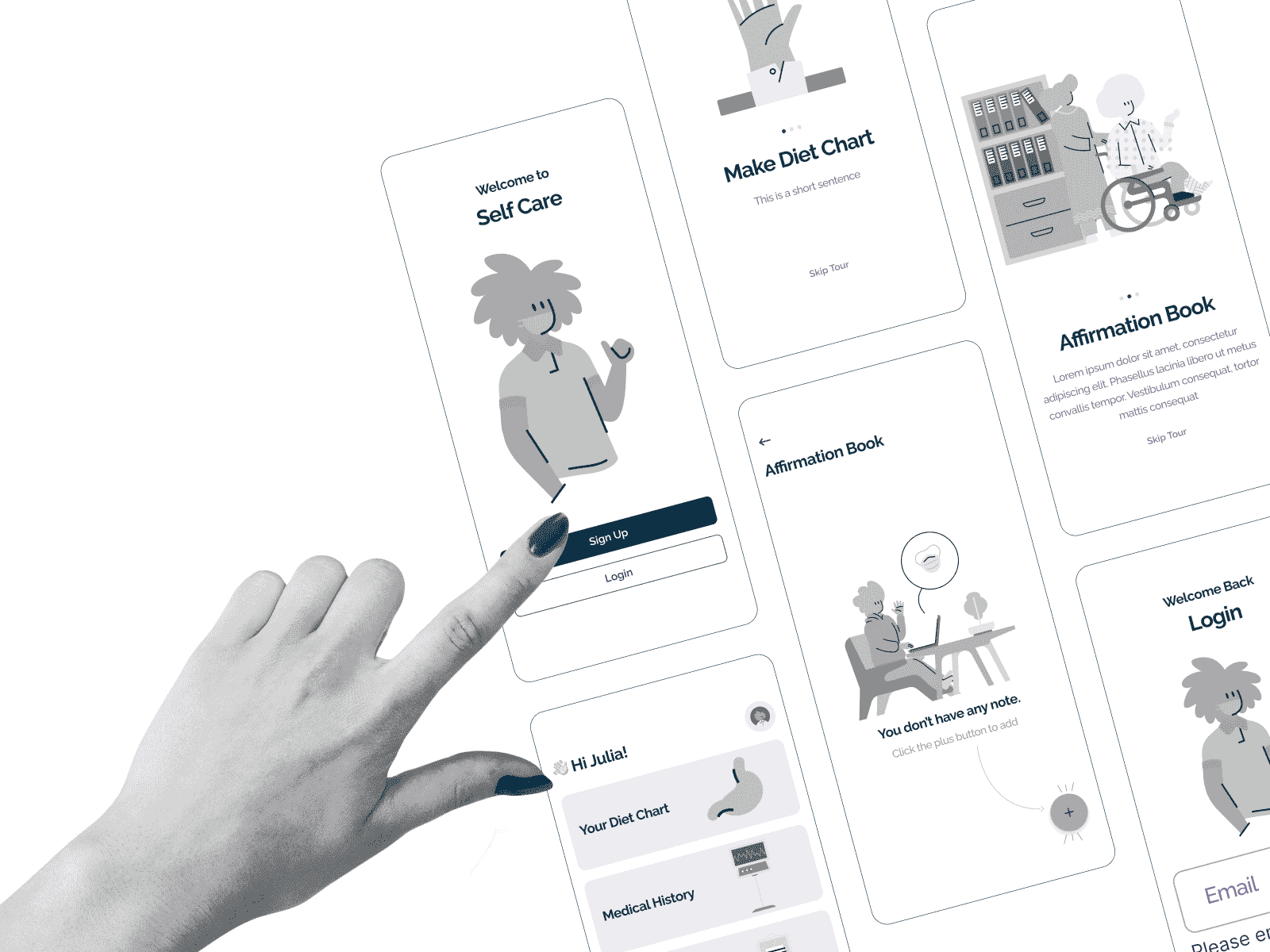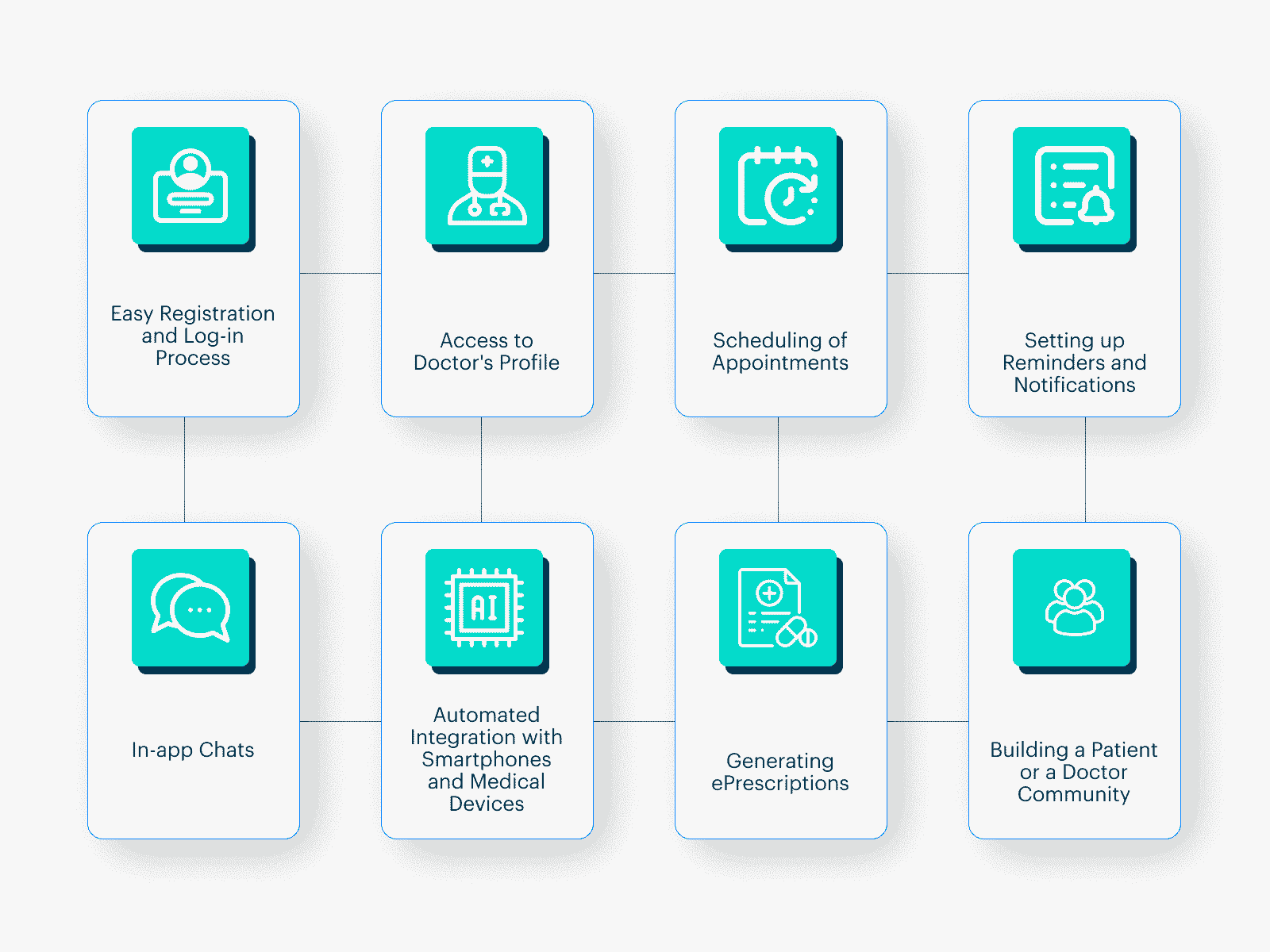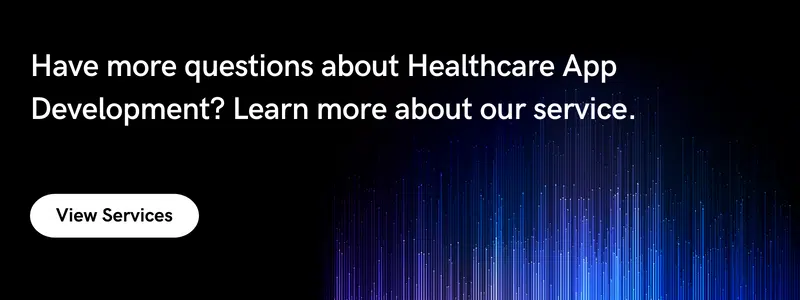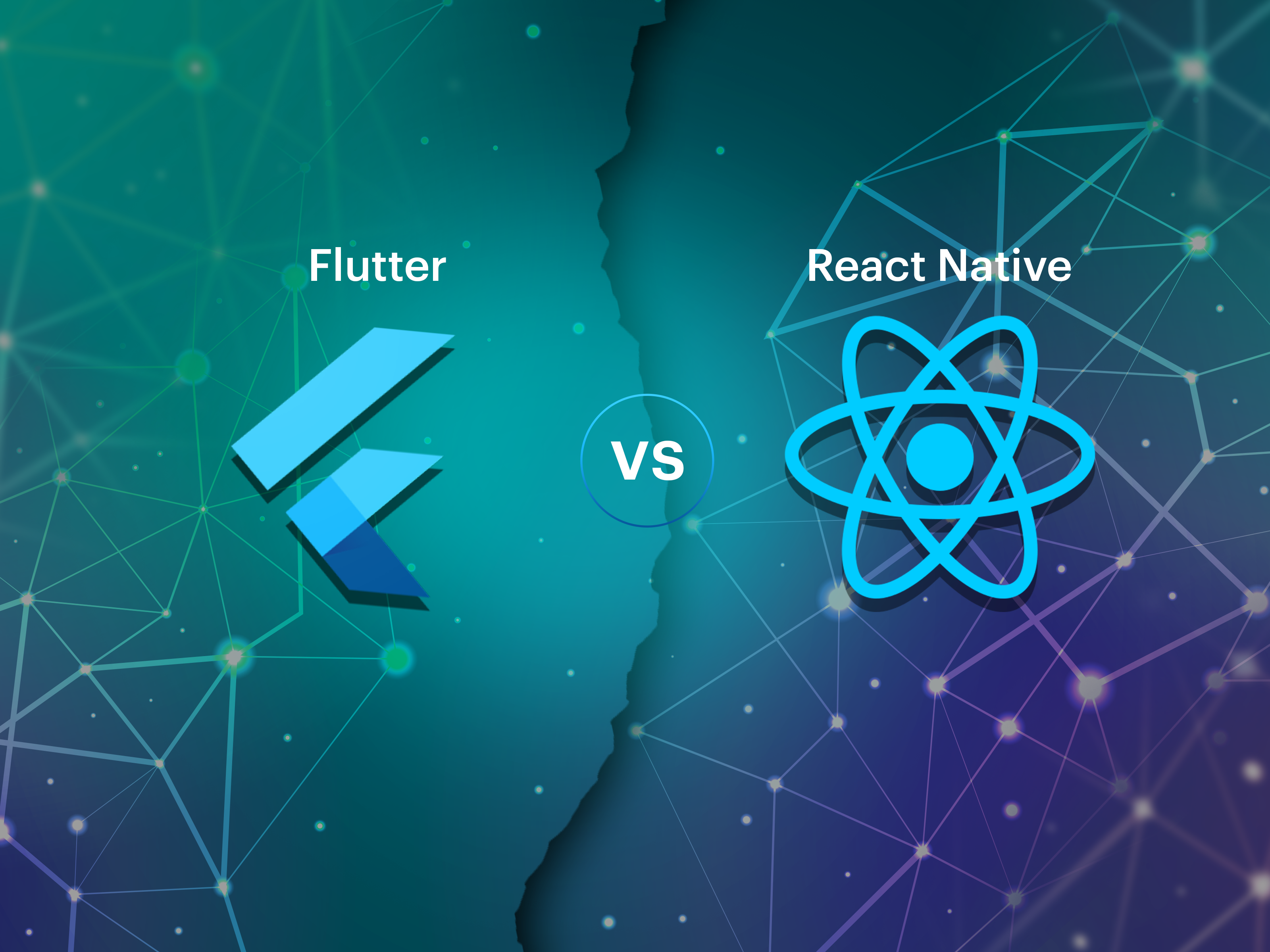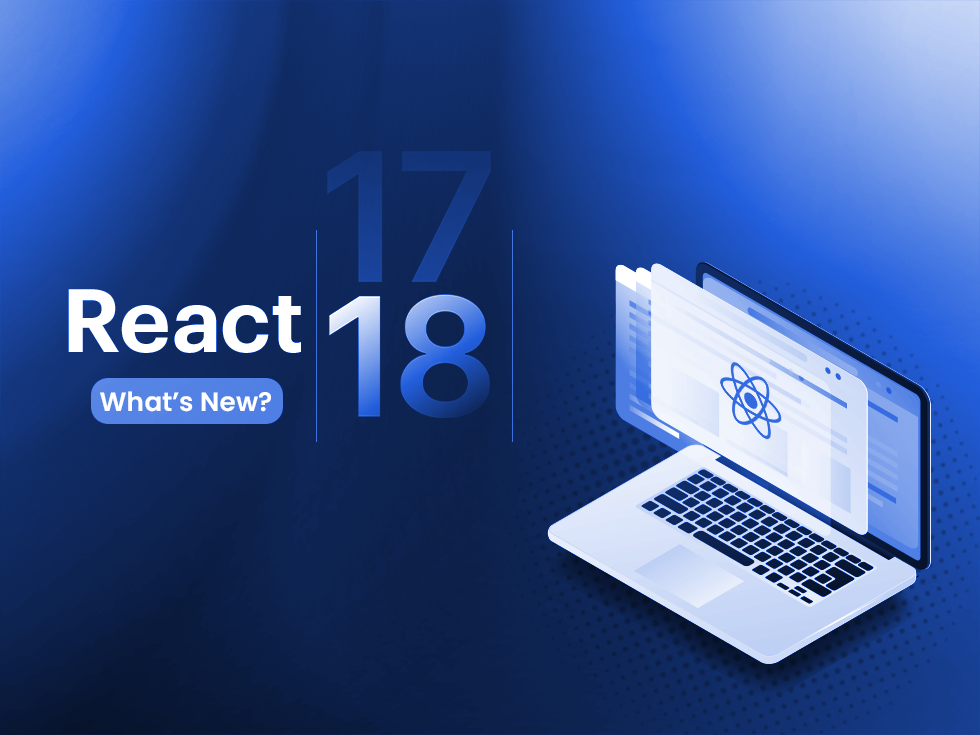Build A Healthcare App: Introduction
What started at a mere $21 Billion industry back in 2016 is expected to be worth $300 Billion by 2025. Did you know that the use of healthcare apps grew by 60% worldwide, all alone during COVID-19? Surprisingly the number of its users grew exponentially during and post-pandemic. This proven fact makes it more evident and crucial to build a healthcare app, provided COVID-19 made the case blasphemous.
Regardless, the medical and health industry is booming more than ever, and the reason we feel that it’s more than essential to talk about why building a healthcare app may bring value to its end users is right now! Read more below.
What Are Healthcare Apps?
Healthcare apps are mobile applications and programs that provide and help in offering health-centric services viz smartphones, tablets, and other smart devices. The idea behind healthcare apps is to make healthcare emergencies accessible to patients with a quick turnaround time in the comfort of wherever you are. Such apps are a part of mHealth programs contributing towards a developed and healthy surrounding.
What Is The Difference Between A Health App & A Medical App?
The major difference between a healthcare app and a medical app is its basics. At the same time, a healthcare app may deal with basic human functioning by not making claims about anything medical. A medical app complies with medical evidence and undergoes serious testing and regulation adherence under numerous policies. A medical app has access to treat someone medically, whereas a healthcare app doesn’t.
What Types Of Healthcare Apps Can Be Developed?
Healthcare apps can be categorized into two broad categories.
1. Apps For Healthcare Professionals
mHealth apps for professionals are best suited for doctors, nurses, or other staff professionals at medical centers or facilities. Such apps are high-end, equipped with advanced features, and may not be of potential use to a layman.
Some of the app categories that fall under this type are:
- Networking apps: Physicians and medical health professionals stay busy and barely have time to engage on social media. However, a medical networking app that helps better decision-making or work tracking, record-keeping, and staff management is a win-win.
- Medical database and reference apps: In simple words, an app that helps medical professionals with an easy way of collecting, recording, and analyzing patients’ data without inducing hours of paperwork is what medical data and reference apps are ideal for. Such apps include critical databases like appointment schedules, medical examinations, prescription records, etc.
- Telehealth apps: Telehealth helps end-to-end users. Such apps are ideal for scheduling appointments with patients and using in-app messaging services to communicate with them freely. In addition, telehealth apps are convenient for practitioners and patients as they help reduce “no-shows” by 50%.
2. Apps For Patients
As the name suggests, such apps are best suited for patients catering to essential services like medical assistance, body analysis, and appointments.
Some of the types of end users apps that fall under the category are:
- Educational health apps: The idea behind educational health apps is to help students and other medical professionals stay up to date with the latest news and information in the industry.
- Lifestyle and well-being apps: Many applications like brain training, fitness, and lifestyle apps fall under this category. Such apps aim to maintain a balanced lifestyle for a healthier tomorrow.
- Tracking and monitoring apps: Monitoring apps come in handy with health monitoring elements on symptom checkups, medication intake, treatment advice, and BP or sugar checkup, among others. These apps are also helpful with chronic diseases like cancer, diabetes, cardiac issues, etc.
- Apps for mental health: Mental Health apps make therapy more accessible and efficient for patients. Such apps help fight depression, insomnia, anxiety, and other mental health problems through pre-recorded medication, prescriptions, breathing, calming exercises, and gamification.
- Dieting apps: The core idea behind a dieting app is to help the user maintain and track their diet, exercise, tally their intake, burn calories to stay fit, and reach the ultimate goal through the following goal. A calorie calculator and everyday meal planner are some of the essential features of such apps.
- Women’s health apps: As the name suggests, women’s health apps are women-centric and focus on overall female health concerns like period tracking, pregnancy symptoms, fertility tracking, and more.
Trends In Healthcare Technology
The healthcare industry dynamics are ever-changing and ever-evolving. The developers and businesses must stay on top of these trends to meet user requirements end-to-end. Big guns of the market provide seamless UI-UX experience to doctors and patients by incorporating DTx tools. Other aspirational high-end fads like Artificial Intelligence (AI), Machine Learning (ML), and chatbot execution are the news of today to scale and grow with time. Nonetheless, one must implement ways to execute the modern trends to stay prolonged in the game. Here are some of them that may benefit your next Healthcare application.
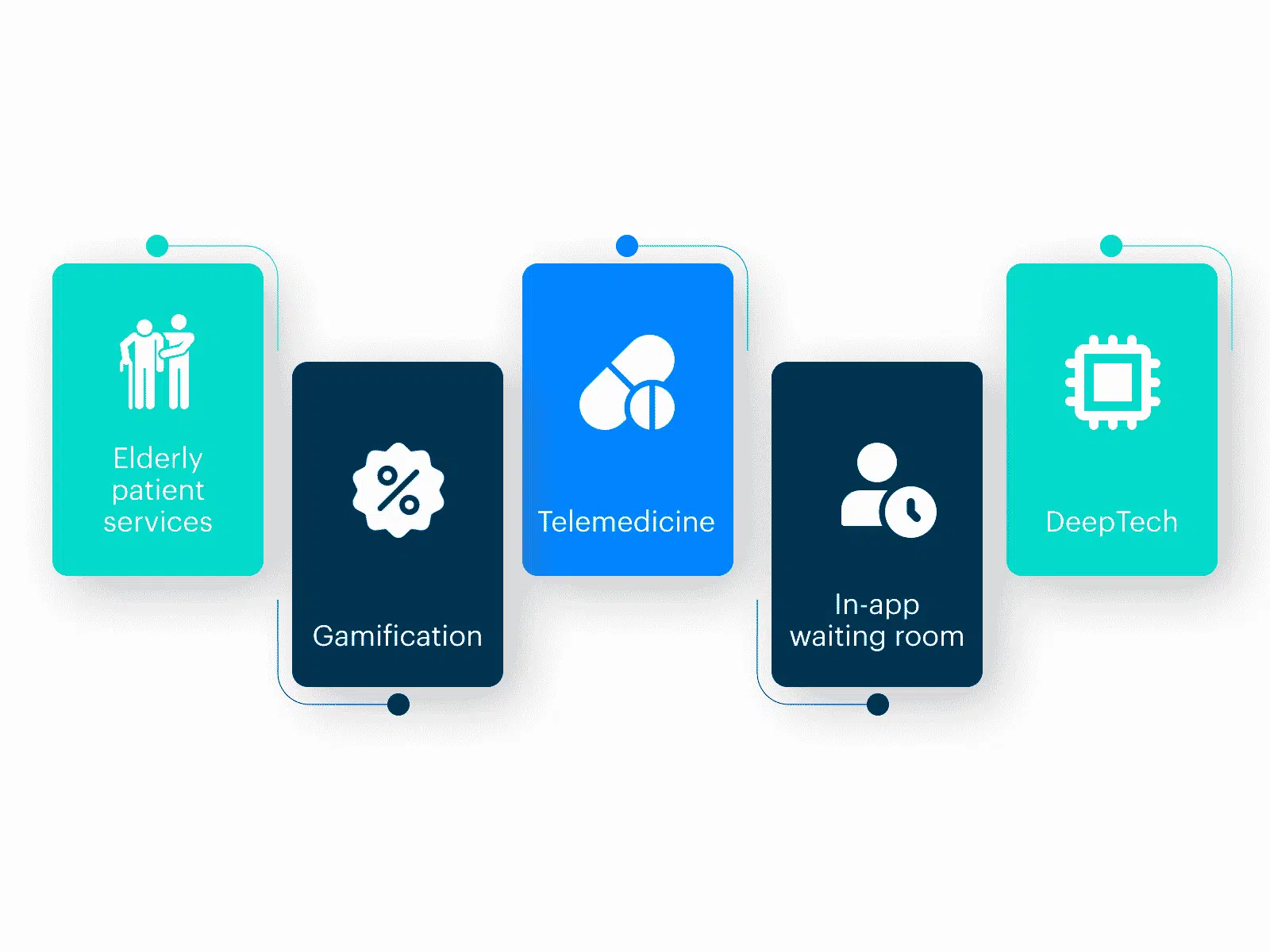
1. Elderly Patient Services
The pandemic has compelled us to consider the remote tracking of patients over 65+ years of age via mHealth, where remote services for older people can be taken care of. To cater to them well, modern technologies play a crucial role in solution providing. In accordance with this, remote health tracking for the elderly, chronic illness, and symptom monitoring are some aspects that make such applications a boom. Moreover, wearable gadgets involve doctors less in manual checkups, which helps them save the patient’s database without a hassle.
Distance health tracking continues to prosper and is likely to surpass other industries in the future, considering its ease, efficiency, as well as flexibility. To gauge the future, such remote-tracking healthcare applications will change how we see the medical industry, making lives convenient for physicians and patients.
2. Gamification
Other than consulting and determining a health problem, its treatment process is more taxing for the patients and the professionals. And if such processes can be divulged into a game, then positive outcomes are only undoubtedly called for. Especially while treating children, if the medication process and reminders, regular sessions can be channeled into a fun activity, and patients feel encouraged and motivated. A few other ways of gifting motivation to patients through such healthcare app development can be via discounts, offers, number of free sessions, etc.
3. Telemedicine
Another healthcare aspect proving profitable for the industry is Telemedicine. COVID-19 bellowed the use of health tracking, appointment schedules, session completion history, record analysis, and health tracking among its users easily. Therefore, to simplify these services and optimize the medical services delivery, Telemedicine is a sure-shot way of ensuring a reliable and effective user experience.
4. In-app Waiting Room
Build a healthcare app to allow patients to schedule appointments and wait for their chance to come in-app. The idea behind this is to validate time and notify the end-users when the appointment comes to enter the virtual room with the doctor. Simple yet effective!
5. DeepTech For Advanced Medical Services
By merging Artificial Intelligence and Machine Learning with mHealth, medical advances are bound to happen. The ways to make use of Artificial Intelligence (AI) are plenty. It can be used in precise decision-making, detesting diagnosis, picking proper treatment, reconsidering sessions for therapy, and more. AI in health can be utilized for rephrasing the dynamics of how we see mHealth that unlocks vivid possibilities. Imagine checking the safety of the pill combination without consulting a doctor. Build a healthcare app to avoid this kind of breakthrough.
How To Build A Healthcare App?
Possibilities and parts of technology made many things seem impossible to have turned true. But, if Midas’ real touch, we are sure Healthcare Industry got blessed in the way. In fact, with a booming rage totaling a worth of $17.2 Billion by 2021, there is no denying that healthcare apps are the key ingredients of success stories. But what does this mean for businesses?
- Apps that concern healthcare will continue to grow
- Feasible and accessible interactive tech for community building will prosper
- Medical problem-solving, virtually or online, will continue to thrive
- The user database only widens with time
- More subscribers mean more users.
Therefore, let’s dive deep into the epicenter of this talk: What are the Things to Consider While Creating a Healthcare App?
1. Decide Your USP & What The App Best Used For
With some 200 daily healthy and medical applications getting updated on Apple Store and Play Store, it is crucial to know the USP point of your product. One must ask themselves certain questions that concern their app’s first-timer advantage and how it is helping the user. Would they want to barge in and use the app again? Is it habit-forming? If the answer to all these questions ends up with a happy yes, you will likely sail through the sea pretty well.
2. Follow Healthcare Regulations Before Setting Up The App
Once you are sure of the forte of your app, consider its elementary features. For example, is it catering to the patients, or is it best for professionals? Adding further, think of the demographic you’d be serving in. But while features are likely to get updated over time, the regulations play the most important game.
While building a Healthcare app, one must adhere to HIPAA and ADA regulations and compliances. Besides the general rules and norms to follow (you may not and be sued for ignorance and mandates), some states have their own set of defined laws and rules to follow. So let’s not put your license in trouble and be mindful about what you potentially get into. Having said that, as you and your app may have access to the user’s private data, privacy rules are therefore conformed to abide by. Just know that an app that lives up to its privacy regulations is loved and preferred by all.
3. Build A Community For Potential Feedback
Many applications often fail because they are not good at taking criticism or cannot determine the app glitches and problems to convey to their developers. This is where feedback from potential users comes in handy. If an app is ready to roll out before the big launch, try introducing it over a soft launch by building a community of users with similar interests. This will help you evaluate the drawbacks from a user point of view and give you time to fill in the loopholes on time. The moral is to take feedback sportingly and work towards improving your product.
4. Ensure Solid Data Security
In providing doctors access to hundreds and thousands of people on an app, developers must protect the data and ensure privacy. Online transactions are an elementary part of the aspect. Protecting user-sensitive data is integral to enforcing a strong security system. Some of the most often applied security systems are:
- Expiration Policy
- Data Encryption
- MFA protection
Although the idea to build a healthcare app may seem gigantic, tedious, and daunting at first, trust us, if your developer understands the stages well, creating the app will be a piece of cake. Understanding and knowing what to expect at every step of the app makes an app developer know what to expect and when.
Must-Have Healthcare App Features
There are two types of healthcare app developments. One for the medical and health professionals and the second for the direct consumers, i.e., the patients. In addition, the must-have features for a healthcare application can be classified into the same two categories. Let’s have a comprehensive look at them below:
1. Easy Registration & Log-In Process
One can set up a simplified registration and log-in process that lets the patients book an appointment slot or feed their data/information without a hassle. Once that is done, the same stays saved in the app’s database without letting the user redo the same process again and again. Remember, the user interface is the biggest challenge that most apps fail at, and you shouldn’t repeat the same.
One of the advantages of the easy registration as well as the log-in process is that it lets users feed their info without help. Think of it as a Do It Yourself practice with a seamless user interface that is self-explanatory. Then rest becomes said and done!
NOTE: Any PHI (Protected Health Information) collected by your app must be safeguarded against cyber hacking as well as malicious cyber crimes. If found guilty in either of the cases, a complaint may go registered against HIPAA regulations.
2. Access To The Doctor’s Profile
Imagine accessing a doctor’s profile as easily as scrolling on Facebook. Yes! The intricacies of the development process need to be that seamless and smooth. Allowing a user to access a doctor’s profile as per their preference and need is one feature one must opt for if you’re planning a patient-centric healthcare app. This can be a must-have option if you offer virtual bookings and appointments.
3. Scheduling Of Appointments
Scheduling an appointment through an app is one of its user’s most common and widely used features. This very feature is loved for its transparency of letting a patient know when to go for the checkup, whereas it keeps the doctor updated about what their day may look like and whom to expect when. The sense of certainty that this feature provides is an app fundamental to have.
4. Setting Up Reminders & Notifications
In-app reminders and notifications that let the user know about the deals offered and the doctor’s availability, reminding them about their next scheduled meetup with the doctor, is a double-edged sword to go for that confirms sure-shot growth. Push notifications and reminders are addictive if used and offered to benefit the user. One can also induce medicine reminders to keep a tap on the daily medication habits of a patient.
5. In-App Chats
Just as Autobots have become a rage on websites and applications to increase user engagement, manual human involvement through in-app chats is still a preferred way to engage users. Why? Well, who wants to speak to a bot when one can do that with a medical professional at the swipe of an app for health-related concerns. Remember, personalized professional consulting is equivalent to a customized birthday cake. And nothing can replace that!
6. Automated Integration With Smartphones & Medical Devices
Our futures are data-driven, if nothing else. And this very well implies medical devices and our everyday healthcare smart wearables. Such wearables like Fitbit, and iWatch, amongst others, have proven to be a goldmine for developers, businesses, and patients that require and prefer an upper hand in leveraging their overall health outcomes in a day.
Having a collective database of a patient through their smart devices makes it only easier for a professional to track and analyze one’s overall state of health at go.
7. Generating ePrescriptions
Gone are the days when prescriptions sounded synonymous with rocket science. Times are now changing, and so is the way to meet, greet and consult a doctor. Therefore, an absolute table-turner is an app that lets users generate a prescription to buy in-app medicines or from retail without visiting an OPD.
8. Building A patient Or A Doctor Community
Think of a community with people who have endured similar health crisis like yours and have aced it. If one thing still rings true till age is that there is no Substitute for Experience. Enabling and letting patients engage in conversations with like-minded people with similar diseases, health problems, etc., is an effective strategy with supportive outcomes from all walks of life. Such communities, as observed, are most successful and famous among women.
Challenges You May Face If You Build A Healthcare App
There are a plethora of healthcare apps available in app stores, but not all of them are successful. While the reasons can be many behind the failure of a mHealth app, some potent ones from a development point of view could be:
- Inferior UI/UX: Convenience is the backbone of app development. If the user experience is at stake, then the chances are certain that your app may end up failing anytime soon. A good and effective UI lets a user load the app faster, contributing to seamless UX in terms of easy navigation, look, and feel to broaden the customer base.
- Poor Security: Poor server-side controls, unsecured data storage, and loss of customer information are reasons for poor security directly threatening an app’s overall growth.
- Fewer features: If too much of anything is harmful, then loo less of anything is equally deteriorating. This implies the success of a healthcare app as well. When an app offers better features, it becomes intuitively powerful, more responsive, friendly, and simpler to use.
While there are many reasons for an app to fail, including a low budget, ignoring users’ feedback, poor interface, app bugs, and more. Sorting them out is the ideal way to go about it.
Build A Healthcare App With Markovate
When it comes to developing mobile-first applications with sought-after analysis and solutions, Markovate is the one-stop destination for healthcare apps. Our industry specialists deliver the best services and seamless user experience through digital breakthroughs and requirements. Be it digital health solutions, medical compliances, health monitoring apps, or Doctor on-demand apps, Markovate ensures delivering end-to-end digital solutions for the same.
Regarding app development, Markovate has been excelling in healthcare app development services catering to digital health services, medical compliances, doctor’s on-demand apps, and many more.
Things to Consider When You Build A Healthcare App With A Healthcare Development Company?
To have a proper track and control of your work for multiple tasks and chores to run like: Industry Specialists, Domain Experts, Ensuring long-term partnership, reliability, timely deliverables, and professionalism at work– hiring an app development agency is the best bet possible. Here’s why:
- Technical Experience: An experienced app and software development company brings in-depth knowledge and expertise to the table, which they withstand to. Such professionals understand the cruciality of the project and pay importance to all the necessary aspects that add value to the product.
- Analyzing the steps: Healthcare app developers and service providers best curate custom-made applications that suit your requirements. However, be it their expertise or years of work-ex, analyzing one’s way of working is necessary, or else the whole development process lead to card crumbling. Therefore, one must ensure that the mobile healthcare application development company you may want to hire informs you about their step-by-step process and establishes a sense of relatability with your goal and vision.
- Understand team processes and roles: You must state your needs to the team openly and precisely. Get into an open conversation with everyone and know them all. Know who’s responsible so your work progress and process do not stay anonymous. Some of the team members you must certainly be:
- Project manager
- App Developer
- Analyst
- UI/UX designer
- QA tester
Contact us today and speak to our pool of experts in developing a successful healthcare app.
Further Read: HIPAA Compliant Mobile App – How Do You Create It?
Build A Healthcare App: FAQs
1. Who enforces HIPAA?
The Office for Civil Rights (OCR) of the Department of Health and Human Services primarily enforces HIPAA Rules.
2. What is ADA compliance?
ADA stands for Americans with Disabilities Act for Accessible Design. It ensures that all Information and Technology (websites and apps) must be accessible and created so those with disabilities can use it.

